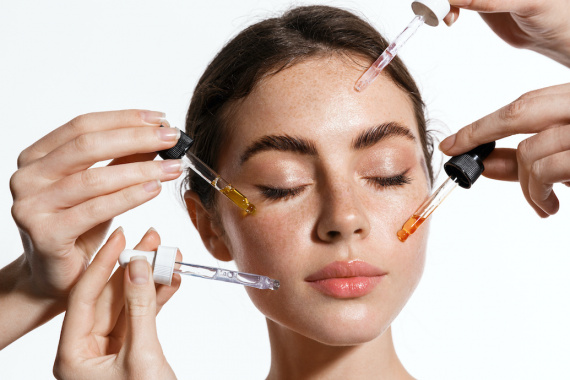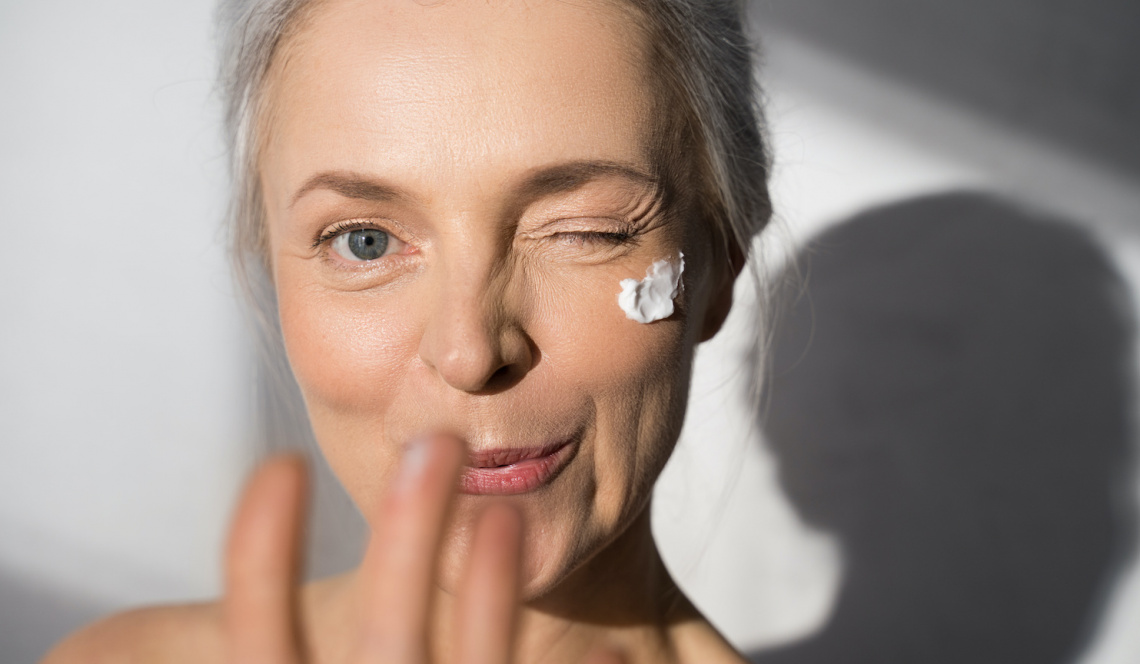When it comes to menopausal symptoms, hot flashes, weight gain, and insomnia generally get all the attention. But, wait! There’s more!
As Miami-based nutritionist Tony Castillo explains, "Collagen is the most abundant protein in the body. It's the major building block of everything from tendons and ligaments to bones, muscles and skin.” Los Angeles dermatologist Dr Ohara Aivaz explains further: this wonder protein is what keeps our skin from sagging, giving us that plump, youthful look. “Think of it as the glue that holds everything in the body together," she says.
Just when we’re feeling invincible, New York dermatologist Dr Diane Berson brings the bad news. “Decreases in collagen found in oestrogen-deficient skin can result in significant skin concerns, including a loss of skin elasticity, hydration, as well as thickness,” she says cheerfully. For those of us who’ve been a victim of the thief who came and stole our collagen overnight, our deepening crow’s lines and thinning skin might make us wary of photo finish close-ups. But it also doesn’t mean we need to wander around with paper bags over our heads forever. Most of us are only too thrilled to learn we can supplement our levels of natural collagen when menopause gets in the way.
According to scientific studies conducted in the early 1980s, women lose about 30% of skin collagen in the first five years after menopause, and levels continue decline about 2% every year after that. Other collagen killers include smoking, too much sun, diabetes, poor nutrition, stress (from excess cortisol), and poor hydration.
Apart from aging, these factors also affect collagen production
- Pollution
- Smoking
- Ultraviolet rays from the sun
- Stress
- Caffeine
- Poor diet
- Alcohol

There are various ways to boost your collagen levels, although the jury is out on which products are the most effective.
Supplements
Collagen supplements are usually made from connective tissue, bones and hooves of cows, pigs, chicken and fish. As collagen is a supplement, not a medicine, is not regulated by the Food and Drug Administration. This means there is no standardisation of the ingredients.
Although three recent studies suggest that taking collagen orally is associated with improved skin hydration and elasticity, and less wrinkling, the scientific community deems them too small (around 60 participants) and too short-term (4 to 12 weeks) to be taken too seriously.
“We're not actually sure if collagen supplements benefit us," says Dr Aivaz."The issue is that most things we ingest are broken down by stomach acids and are not absorbed into the bloodstream. It's unclear if we absorb ingested collagen or if it's totally broken down in the stomach." According to Dr Marie Hayag of the American Academy of Dermatology, if your diet includes protein-rich foods, like lean meat, eggs, dairy and beans, oral collagen supplements probably aren't necessary. The good news is that if you use collagen powders and tablets and you don't need them, your body simply won't absorb the extra collagen and will naturally eliminate any excess.
Topical creams
In theory, topical collagen (creams and serums) is supposed act on the second layer of your skin (the dermis) in order to plump up your collagen levels. However, collagen molecules are too large to penetrate the first layer of your skin (the epidermis). This means they never really get to the right place for you to reap the rewards. This is why most skin products contain collagen peptides (smaller components of this wonder protein) rather than actual collagen. New York dermatologist Dr Sejal Shah says "Theoretically, these smaller peptides can penetrate the skin and stimulate collagen production."
Dr Hayag recommends adding retinal creams and Vitamin C serums to your routine. Retinal is a form of vitamin A and aids the body in cellular turnover. Vitamin C is a powerful antioxidant that targets the free radicals that wreak havoc on our skin. Regularly applying a good sunscreen with UVA protection will prevent your collagen from breaking down further.








Comments